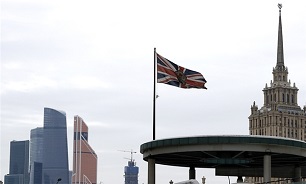Russian Diplomat Says Reaction at UK’s Porton Down Proves It Develops Toxic Chemicals
 Earlier, Aitkenhead said "We would not be allowed to operate if we had lack of control that could result in anything leaving the four walls of our facility here", TASS reported.
Earlier, Aitkenhead said "We would not be allowed to operate if we had lack of control that could result in anything leaving the four walls of our facility here", TASS reported.
In comments on his words, the Russian diplomat noted that "Actually, the British side has confirmed that development and research into new military-grade poisonous substances are underway at that secret facility."
"Furthermore, Aitkenhead did not deny there was a stockpile of chemical weapons, allegedly including the A-234 nerve agent, which in line with official assurances of the British side, had been used to poison the Skripals and Detective Sergeant Nick Bailey," he added.
The Russian Embassy’s Press Secretary reminded that UK’s Foreign Secretary Boris Johnson hinted the UK had such samples.
"These statements leave us no choice but to reinforce our demands that we should be given full information about the inquiry and that the program to produce military-grade agents in Porton Down should be made public," the diplomat said.
On Friday, Porton Down rejected a possibility of its involvement in poisoning of former Russian military intelligence officer Sergei Skripal and his daughter Yulia on March 4.
Aitkenhead pledged they had "the highest levels of controls, of security around the work that we do here."
On March 4, Skripal and his daughter were found unconscious on a bench near the Maltings shopping center in Salisbury.
Police said they had been exposed to a nerve agent. Both are in the hospital in a critical condition.
The UK accused Russia of being involved, but failed to produce any evidence.
UK Prime Minister Theresa May on March 14 accused Russia of "unlawful use of force" against her country.
She said that 23 Russian diplomats would be expelled from the country within one week and that all planned high-level bilateral contacts had been suspended.
Russia has rejected all of the United Kingdom’s accusations.
On March 17, the Russian Foreign Ministry said that in response to the UK’s steps, 23 British diplomats would be expelled within a week.
In addition, Britain’s consulate in St. Petersburg would be closed and the British Council’s operations in Russia would be terminated. Furthermore, Moscow pointed out that further measures could be taken "should there be any more hostile actions against Russia."
